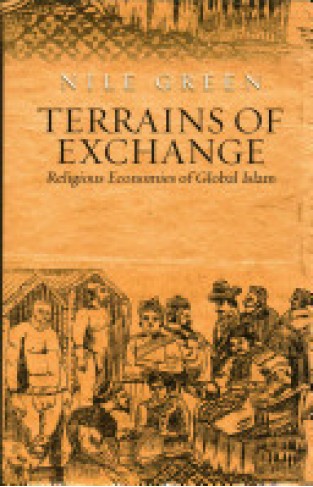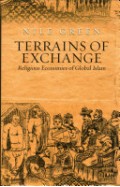Terrains of Exchange: Religious Economies of Global Islam
By: Nile Green
-
Rs 3,465.00
- Rs 3,850.00
- 10%
You save Rs 385.00.
Due to constant currency fluctuation, prices are subject to change with or without notice.
Drawing Indian, Arab, Iranian and Tatar Muslims together with Scottish missionaries and African-American converts, Nile Green brings to life the local sites of globalisation where Islam was repeatedly reinvented in modern times. Evoking terrains of exchange from Russia's imperial borderlands to the factories of Detroit and the ports of Japan, he casts a microhistorian's eye on the innovative new Islams that emerged from these sites of contact.
Drawing on a multilingual range of materials, the book challenges the idea that globalisation has given rise to a unified "global Islam." Instead, it reveals the forces behind the fracturing of Islam in the hands of feuding and fissiparous "'religious firms".
Terrains of Exchange not only presents global history as Islamic history. It also reveals the forces of that history at work in the world today.
Drawing Indian, Arab, Iranian and Tatar Muslims together with Scottish missionaries and African-American converts, Nile Green brings to life the local sites of globalisation where Islam was repeatedly reinvented in modern times. Evoking terrains of exchange from Russia's imperial borderlands to the factories of Detroit and the ports of Japan, he casts a microhistorian's eye on the innovative new Islams that emerged from these sites of contact.
Drawing on a multilingual range of materials, the book challenges the idea that globalisation has given rise to a unified "global Islam." Instead, it reveals the forces behind the fracturing of Islam in the hands of feuding and fissiparous "'religious firms".
Terrains of Exchange not only presents global history as Islamic history. It also reveals the forces of that history at work in the world today.
Afghanistan in Ink: Literature Between Diaspora and Nation
By: Nile Green
Rs 3,080.00 Rs 3,850.00 Ex Tax :Rs 3,080.00
Terrains of Exchange: Religious Economies of Global Islam
By: Nile Green
Rs 3,465.00 Rs 3,850.00 Ex Tax :Rs 3,465.00
Zubin Mehta: A Musical Journey (An Authorized Biography)
By: VOID - Bakhtiar K. Dadabhoy
Rs 840.00 Rs 1,050.00 Ex Tax :Rs 840.00
The Origins of Political Order From Prehuman Times to the French RevolutioN
By: Francis Fukuyama
Rs 4,495.00 Ex Tax :Rs 4,495.00
Manning Up: How the Rise of Women Has Turned Men into Boys
By: Kay Hymowitz
Rs 995.00 Ex Tax :Rs 995.00
The Obama Syndrome: Surrender At Home War Abroad
By: Tariq Ali
Rs 1,036.00 Rs 1,295.00 Ex Tax :Rs 1,036.00
The Quest For Meaning: Developing A Philosophy Of Pluralism
By: Tariq Ramadan
Rs 1,116.00 Rs 1,395.00 Ex Tax :Rs 1,116.00
The Pakistan US Conundrum Jihadists The Military And The People The Struggle For Control
By: Yunas Samad
Rs 1,116.00 Rs 1,395.00 Ex Tax :Rs 1,116.00
An Enemy We Created: The Myth Of The Taliban Al Qaeda Merger In Afghanistan 19702010
By: Alex Strick van Linschoten
Rs 5,250.00 Ex Tax :Rs 5,250.00
WikiLeaks: Inside Julian Assanges War on Secrecy
By: David Leigh & Luke Harding
Rs 850.00 Ex Tax :Rs 850.00
No similar books from this author available at the moment.
No recently viewed books available at the moment.
Zubin Mehta: A Musical Journey (An Authorized Biography)
By: VOID - Bakhtiar K. Dadabhoy
Rs 840.00 Rs 1,050.00 Ex Tax :Rs 840.00
Afghanistan in Ink: Literature Between Diaspora and Nation
By: Nile Green
Rs 3,080.00 Rs 3,850.00 Ex Tax :Rs 3,080.00
Terrains of Exchange: Religious Economies of Global Islam
By: Nile Green
Rs 3,465.00 Rs 3,850.00 Ex Tax :Rs 3,465.00















-120x187.jpg?q6)





-120x187.jpg?q6)



-120x187.jpg?q6)



